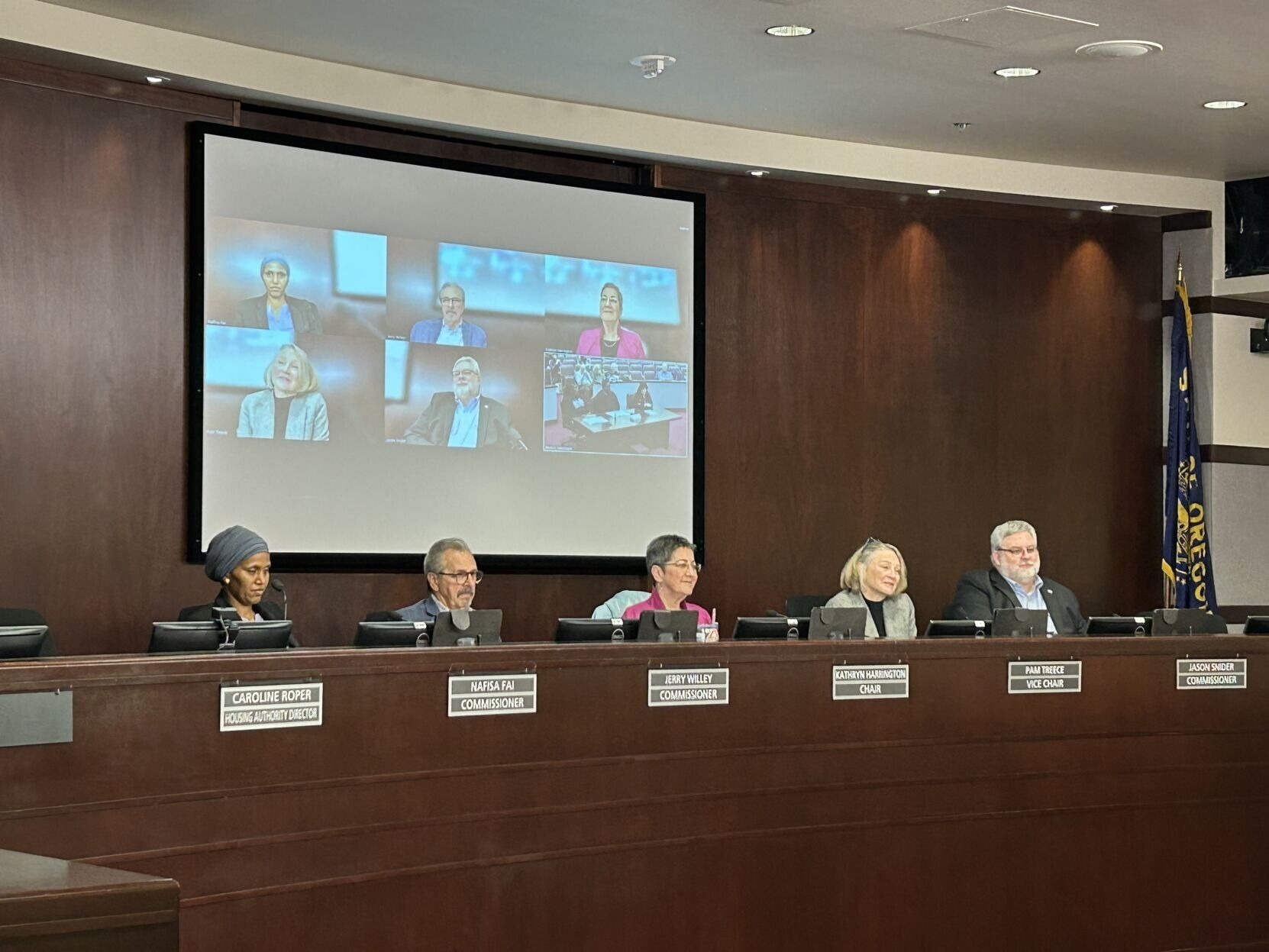Opinion: Data center discrimination bill sends wrong economic message for Oregon
Published 9:29 am Monday, April 7, 2025

- An artist’s rendition of Facebook’s Prineville campus courtyard. An opinion writer says the Oregon Legislature could pass a bill this term that would harm the state’s data centers.
In times of economic crisis like we’re hurtling towards, policymakers need to be especially careful to do no harm. Oregon is taking fire from all directions, and we need to prioritize policies that restore solid economic footing for our businesses and workforce. Unfortunately, Salem is pursuing legislation that would further damage Oregon’s vital tech sector at precisely the wrong moment.
This week, the House Committee on Climate, Energy and Environment will consider the POWER Act (HB 3546), which would create a discriminatory electric rate-class targeted specifically at data centers. Oregon has emerged as a leader in AI, cloud computing and the data centers that power these critical technologies. This growth has been accompanied by a rise in electric vehicle adoption, electrification and renewable energy buildout, and a push for more domestic manufacturing in strategic sectors like semiconductors — all of which have many benefits but also added stresses to our antiquated electric grid.
This has awakened lawmakers to the need for long-term investments to increase our energy capacity. That conversation is long overdue, but let’s not forget that data center growth has brought needed development to struggling counties and has been the envy of other states and countries. To thrive, Oregon must stop punishing success and instead invest in our energy infrastructure to ensure reliable, affordable power for consumers and businesses.
Trending
While it is encouraging that leaders in Salem acknowledge the need to update our energy system to reflect our climate goals and power needs, discriminating against particular industries — especially the companies keeping our economy on track — is simply bad policy and further reinforces the costly perception that Oregon is hostile to private sector investment.
As business manager for the United Association of Plumbers and Steamfitters (UA) Local 290, development of this industry has helped support thousands of jobs. Passing HB 3546 in its current form will put the jobs and livelihoods of our skilled multi-craft workers at risk — an unnecessary risk that should be avoided.
We can’t ignore the extreme volatile economic context in which this proposal is being considered. The economy has shifted radically since this bill was first introduced in 2023. The worsening trade war is already decimating Oregon companies like homegrown brands like Columbia and Nike, but Oregon’s largest import and export are computer chips and components. These are the building blocks of our innovation economy, yet Salem is poised to erode this foundation. We have not yet felt the full magnitude of draconian cuts in federal funding undercutting industries and projects that support our workforce, and the livelihoods of Oregonians. Our economy is hemorrhaging and the last thing Salem should do is add to the bleeding.
Which makes the focus on discriminatory policies like the POWER Act even more puzzling. We have developed a bad habit in Oregon of seeking revenue by targeting specific industries to avoid the hard work of collaboration and shared sacrifice. Instead of creating roadblocks to infrastructure and growth, we should be looking for ways to supercharge our economy and spur more data center projects that employ our skilled tradespeople and serve as a bright spot in an economy that is under increased pressure from harmful federal policies and geopolitical tensions.
Make no mistake: Oregon faces urgent and legitimate energy issues that merit full attention but running off companies that we all rely on in our daily lives, and that create high wage jobs across Oregon is wrong-headed.
Keep in mind these are the same companies that are leading efforts to meet climate goals with ambitious renewable energy plans to reduce emissions across their operations, deploying billions of dollars to build more wind and solar projects across Oregon and the United States. We need their investment to realize more renewable power in Oregon as a pathway to responsible and durable load growth in the years to come. Lawmakers should consider constructive changes to HB3546 that make progress on bill proponents’ goals while not crippling one of the most vibrant parts of the Oregon economy and pushing projects and jobs to other states.
Trending
Now is the time for our leaders to recommit to the policies that made Oregon a hotbed of innovation and entrepreneurism, and a state that is competitive for high road contractors and our workforce. A durable, equitable and cleaner economy requires fairness and compromise. There is no shortage of economic challenges facing our state and our workers, and we don’t need to create another one by dismantling one of our top growth industries.
W. Paul Elder serves as business manager of the United Association of Plumbers & Steamfitters (UA) Local 290.







